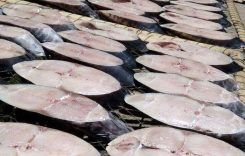Labour Minister’s Statement On Unemployment Fund
 Minister of Labour, Social Security and Human Resource Development, Senator Dr. Esther Byer. (FP)
Minister of Labour, Social Security and Human Resource Development, Senator Dr. Esther Byer. (FP)The Barbados National Insurance Scheme (NIS) currently covers all employed and self-employed persons in Barbados and offers five main types of social security benefits from three separate funds.
The National Insurance Fund covers short-term benefits, long-term benefits or pensions and employment injury benefits, while the Unemployment Fund and Severance Fund cover unemployment benefits and severance payments, respectively.
As a result of the weak performance of the Barbados economy in recent years, contribution income for the various funds has declined, while benefit expenditures have increased. Despite this, the National Insurance Fund and the Severance Fund continue to perform extremely well and are generating major surpluses.
Over the 2009 to 2013 period, the National Insurance Fund generated a combined surplus of over $1.15 billion, and the Severance Fund a combined surplus of over $105 million (See Tables 1 & 2 for annual performancefrom 2009 to 2013, and up to the end of October 2014).
At the recently concluded 14th Actuarial Review, the consultant actuary was of the view that no adjustments were needed to these funds. As is to be expected, the Unemployment Fund has felt the brunt of the recession.
As the unemployment rate has increased, contribution income to the Unemployment Fund has declined, unemployment benefit expenditures have increased, and as a result, the fund has experienced deficits (see Table 3). This happens whenever there is a prolonged period of low employment.
The Unemployment Fund was also impacted in an accounting sense by the transfer of $10 million to the Re-Training Fund. These funds had never belonged to the Unemployment Fund but had been lodged there over many years until the legal and other work for the Re-Training Fund was completed.
The nature of an Unemployment Fund is such that during periods of strong economic growth and low unemployment, the fund should generate surpluses which are then invested to provide a cushion for the inevitable recessions, with high unemployment and deficits on the fund.
Therefore, despite the deficits being experienced, the Unemployment Fund has been able to fully meet its commitments by drawing down on the investment assets that have been built up for that purpose.
At the recently concluded 14th Actuarial Review, the consultant actuary noted that while the NIS has two funds to deal with periods of increasing unemployment, one of the funds, the Unemployment Fund, was experiencing deficits, while the other, the Severance Fund, continued to generate surpluses.
It was, therefore, recommended that in order to reduce the draw-down of the investment assets of the Unemployment Fund and shore up the fund, a sum of money be transferred to it from the Severance Fund. The NIS Board sought an opinion from the Solicitor-General as to the legality of such a transfer, and it was indicated that such a transfer should not be undertaken.
As an alternative, the Board recommended to Cabinet that employers’ contributions to the Severance Fund be suspended for a period of two years and instead the contributions by employers to the Unemployment Fund be increased by the same amount for the two-year period.
This was viewed as a better option than increasing contributions by employees and employers to the Unemployment Fund, especially at this difficult time. I want to assure Barbadians that Government is committed to the preservation and continued success of the Unemployment Fund and has already made two decisions that will shore up the Fund.
Firstly, Cabinet has accepted the Board’s recommendation just described for the suspension of contributions to the Severance Fund and a concomitant increase in employers’ contributions to the Unemployment Fund for a two-year period.
The relevant legislative changes will be made in Parliament shortly and the policy implemented. Secondly, Cabinet has agreed to provide a further cash injection of $12.5 million to the Unemployment Fund. These measures will shore up the Fund and ensure that all Barbadians who have contributed and qualify for unemployment benefits will have protection during periods of unemployment.
The other four types of security benefits (short-term, including sickness and maternity; long-term or pensions, employment injury and severance) are not affected. Additionally, the investment portfolio is also sound as investments internationally, regionally and locally are performing satisfactorily.
While some may have an interest in putting a political spin on matters relating to the NIS and seek to create panic among the population, I am presenting you with the plain facts and the decisions that have been taken to ensure that the NIS remains your lifeline.
Ministry of Labour, Social Security and Human Resource Development












